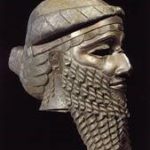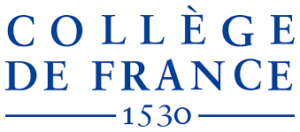The king’s body in Ancient Mesopotamia, and the literary construction of space and time: History and ideology
[fr]
- – Mercredi 22 novembre 2017 de 16h à 18h
Conference et video conference de Maria Grazia Masetti-Rouault,(EPHE)
_ Sur place au CNRS d’Ivry sur Seine, 27 rue Paul Bert, métro Porte de Choisy/Porte d’Ivry, salle C en sous-sol
ou à distance par vidéo-conférence
[en]
Wednesday, November 22, 2017 4 p.m.-6 p.m.(Paris time)
A lecture by Maria Grazia Masetti-Rouault (EPHE)
CNRS building, 27 rue Paul Bert, Porte de Choisy/Porte d’Ivry subway station, room C in the basement or by distance through video-conference
 This paper will discuss the ways in which the king’s body, his experiences, his knowledge and feelings were exploited as powerful tools to build up the reality in which ancient Mesopotamian culture could be integrated. Considering the pivotal importance of the royal body, it is interesting to realize that, in Mesopotamian culture and religion, notwithstanding some limited experiments, it never acquired a divine status. During the Neo-Assyrian period, ritual texts and letters, as well as iconography, show the importance attributed to the integrity and the purity of the king’s body. By the end of the Empire, the king’s body, identified as the passive object of cures, rituals and ceremonials, reveals also the limits of the king’s power.
This paper will discuss the ways in which the king’s body, his experiences, his knowledge and feelings were exploited as powerful tools to build up the reality in which ancient Mesopotamian culture could be integrated. Considering the pivotal importance of the royal body, it is interesting to realize that, in Mesopotamian culture and religion, notwithstanding some limited experiments, it never acquired a divine status. During the Neo-Assyrian period, ritual texts and letters, as well as iconography, show the importance attributed to the integrity and the purity of the king’s body. By the end of the Empire, the king’s body, identified as the passive object of cures, rituals and ceremonials, reveals also the limits of the king’s power.
[fr]
Cette conférence est la 13eme séance mensuelle du séminaire interdisciplinaire :
“The Individual and his Body in the Ancient Mediterranean Basin” organisé par Alice Mouton.
- Pour assister à la conférence (sur place à Ivry sur Seine ou par video-conference) merci de vous inscrire gratuitement à l’adresse suivante :
alice.mouton@cnrs.fr
[en]
This presentation constitutes the thirteenth monthly session of the interdisciplinary seminar “The Individual and his Body in the Ancient Mediterranean Basin” organized by Alice Mouton.All the persons who are interested in attending the session (either in Ivry sur Seine or through video-conference) are welcome for free but should register by e-mail beforehand.
contact: alice.mouton@cnrs.fr
_ avec le soutien du Labex RESMED 




